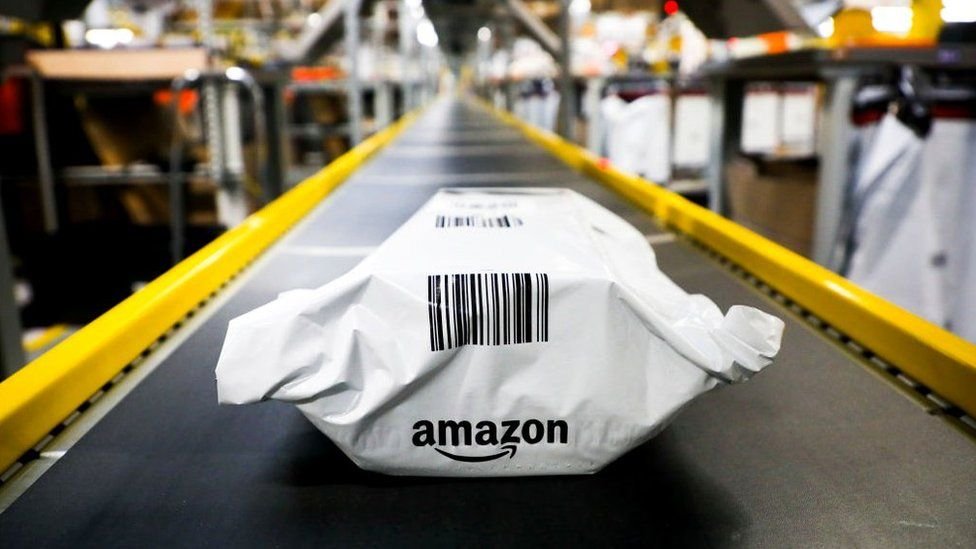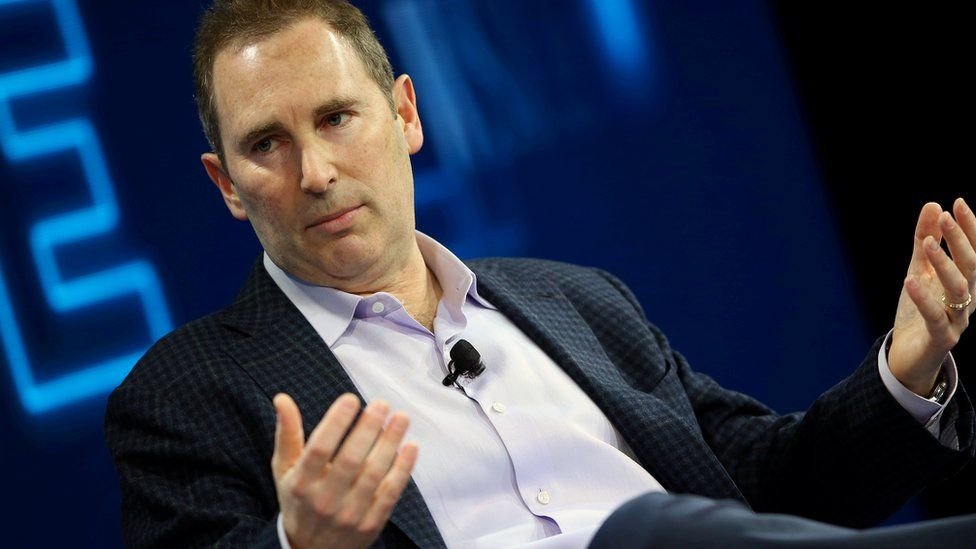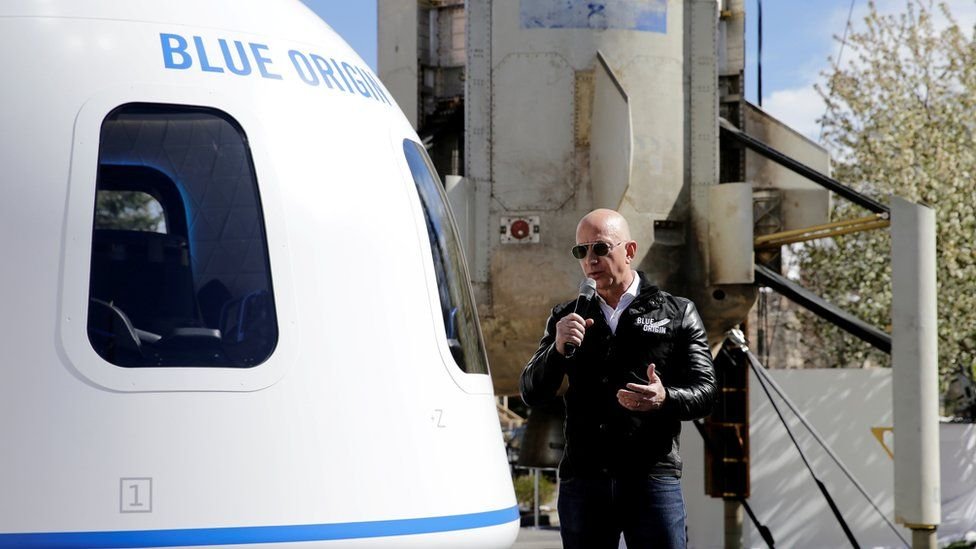In 2004, Jeff Bezos and his technical adviser Colin Brar traveled together to Tacoma, an hour south of Seattle in Washington state.
At the time, Amazon was a multibillion-dollar company. However, they were on their way to Amazon’s Customer Service Center. Where they had to spend two days as customer service agents.
“Jeff was actually taking the calls himself”, Bryar says. He recalls that a complaint on one product, in particular, kept coming in. “Jeff’s eyes went wide,” he says.
Bezos was disappointed. There was clearly something wrong with the product, but it didn’t add up. At the end of the day, he sent an e-mail for more effective ways to flag defective products.

Bezos steps down from Amazon on Monday – exactly 27 years after he founded it.
During this time he has developed a series of extraordinary leadership principles – which some people argue are the backbone of his success. Others think they talk about everything that is wrong with Big Tech.
Talk to anyone who has ever worked at Amazon, and you won’t have to wait long to hear the phrase “customer obsession.”
For Bezos, profit was a long-term dream. In order for a company to succeed, it has to have happy customers – at almost any cost.
Nadia Shurabora started working for Amazon in 2004. He was invited to the elite “S Team” of Amazon’s Senior Managers Board. But when he first started, he thought he would be fired immediately.
“I made the biggest mistake of my life during our Christmas peak,” she says.
Shurabora had ordered important products from the warehouse cabinets, which were very large. Getting the right product from the shelves will take time and money.
“I came up with a clever way for us to spend as little money as possible, and to solve this problem. But when I talked to Jeff about it, he looked at me and He said, “You are thinking about all this.”
“You’re thinking how to optimize money here. Fix the problem for customers, and then come back to me in a few weeks and tell me the cost.”
Bombshell Claims
Bezos has many critics. Last month, a bombshell article from ProPublica claimed to have seen Bezos’ tax returns – and alleged Mr Bezos paid no tax in 2007 and 2011. It was a stunning claim about the world’s richest man.
Other negative stories about Amazon, its ruthlessness, its claims of monopoly behavior, did not help Bezos’s reputation.
However, many people who work with him do not recognize this trait as being careless or selfish.
For them, it is a business vision. The center of attention of a man who developed a philosophy of legendary work and a company that cost about $1.8tn.
The two-pizza Rule
Bezos likes small teams. He has a rule for keeping meetings fruitful: make sure you can serve two pizzas to the whole group.
He hates PowerPoint presentations, preferring written notes to communicate with executives.
To avoid putting too much pressure on the dominant figures, he would sometimes walk around meeting everyone, asking how they felt about a question.
And those who know him say that he loves those who are behind him. “We’ll argue, and we’ll yell at each other,” Shorabura said.
“Everything is very open, and on the table, and the conversations get heated and very passionate. But it’s about the subject, never against the person,” she says.
Amazon has a set of 14 “leadership principles”. One of those speaks of having “the backbone to disagree”.
And it seems Bezos genuinely wants to foster that culture at a higher level. Leaders should “not compromise for the sake of social cohesion”, the principal says.
However, there are questions as to whether this philosophy has always been properly interpreted under the chain at Amazon.
Bezos is a fan of engineering, inventions, machines. She is suffering from the matrix. In the world of logistics, it is not good. But critics say the madness has human costs, especially in Amazon’s numerous warehouses.
During a failed attempt to form an Amazon workers’ union in Besmer, Seychelles, I spoke to several workers who said they felt like “pirates in a machine.” Others describe the feeling of being “constantly monitored”.

At a more senior level, however, Bezos’ management looks different. He likes his teams to gain autonomy, which he believes promotes innovation.
Amazon Web Services (AWS), a surprisingly successful cloud computing service, did not have much to do with Amazon’s core business: e-commerce.
Bezos, however, supported the idea and gave his trusted employee, Andy Jesse, more information about independence and making the capital a company. Bezos sees Jesse not just as a manager but as a businessman – an important part of why he will succeed Beroze.
“It’s easy to be brave when you’re a start-up” says Shouraboura. “As you grow it gets harder and harder to be brave, because now you’re risking a lot. He was always very brave.”
People who know him say that Bezos likes to approach problems “backward”. “It’s a very specific process at Amazon,” says Bryar.
In the planning phase, the teams will set a reverse timeline – start with the launch and start backwards.
“The team first writes a press release, which is usually written by companies.”
It comes down to Bezos in time. That’s what he thinks a lot about. He installed a m 42m (m 30m), 10,000 year old clock in a hollow mountain in Texas. It should represent the power of “long-term thinking”.
And until the festival, Bezos always kept in touch with the game. People close to him often use the word “methical” to describe a customer’s obsession with short-term profits.

Always fascinated by space travel, his goal is to fly in space on the first flight of crew developed by his company Blue Origin later this month.
About 1.5 million signatures have been collected in the petition not to allow him to return to the land.
But like him or hating him, Bezos has proved to be a very bright and capable leader. Someone who has changed the way companies around the world work.


